Out and Proud (On the Page and In Real Life): My Long and Not-Straight Journey to Self-Acceptance, a guest post by Amber Smith
Confession: When I was in eighth grade, I stole my public library’s copy of Nancy Garden’s Annie on My Mind because I was too afraid to check it out. I kept it hidden under my bed for years, its pages well-worn from reading it so many times.
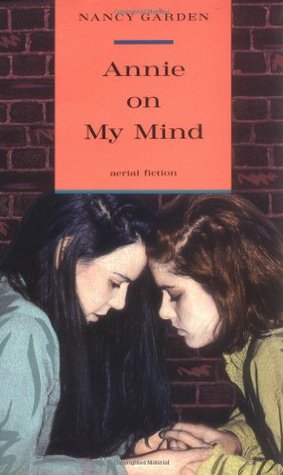
I remember coming of age in the 90s and feeling very disconnected from a lot of the progress I saw happening on TV and in the media where queer people were out and proud and beginning to be more accepted, because in my little corner of the world, I didn’t know any gay people. My only references were conflicted at best, and harmful at worst.
ADVERTISEMENT
ADVERTISEMENT
I’m not entirely sure why these are the things that are branded in my memory as vivid as if they happened yesterday, but these are some of the earliest times I became aware that there were people who thought there was something deeply wrong and shameful about the existence of gay people:
1. Watching Melrose Place in 1994, and the shock and disgust and horror that erupted out of a potential/suggested kiss between two men that aired on the show.
2. “Don’t Ask, Don’t Tell.” Being in a military family, I was very aware of the controversy surrounding this, and it absolutely boggled my mind. There were clearly plenty of people who thought LGBTQ people were not fit to serve in the military, and I couldn’t make sense of what one had to do with the other (because it made zero sense).
3. The token lesbian character on the show Friends: Ross’s ex-wife who had left him for another woman. Whenever she was mentioned, it was always accompanied with a roaring laugh track.
4. And then when Ellen’s sitcom was canceled after she came out on the show.
What I was learning slowly, one small instance at a time, was that visibility and being “out” (whatever the hell that meant; at the time I wasn’t sure) always came at a price.
When I looked around at my life, this is what I saw: There was not a single out student at my entire high school; though we were (of course) present. The gym teachers were rumored to be “dykes” and were either laughed at behind their backs or treated like predators to their faces. There were not LGBTQ-Straight Alliances back then; in fact, “LGBTQ” wasn’t even a thing yet. The word “queer” was still an insult, and it was not a word I wanted to be associated with in any way.
Still, I relished the rare book, movie, or TV show that featured any gay characters, which were few and far between. In high school I would discreetly stalk the video store, searching for movies that had any kind of gayness in them, and I would try to act casual as I brought my stack of VHS tapes to the checkout counter, watching the faces of the cashiers closely for signs of judgment or disapproval. (To this day, I don’t know if I imagined them or if they were real). I’d watch the movies in the middle of the night when no one in my house was awake, literally playing them on mute and reading the subtitles, desperate to find a connection to this world (which I both suspected and feared I was a part of) that was positive. Finding Annie on My Mind was life-changing because it was the first time I had found a story where there was love and hope and acceptance, with characters that felt real and whole, flawed and complex. I needed this book like I needed oxygen.
By the time I got to college, I was ready for some freedom. I found my first girlfriend and felt like I was alive for the first time in my life. I may have been emboldened by being able to be out around my fellow art students, but what I soon learned was that life in the real world was very different from strolling around campus holding hands with my girlfriend. It only took a few verbal attacks and threats of physical violence to put a quick end to PDAs altogether. It’s a very disorientating and confusing feeling to know with every fiber of your mind and heart and soul that you are living your life the way you need to be living it, and at the same time, to be deeply terrified of the consequences for doing so.
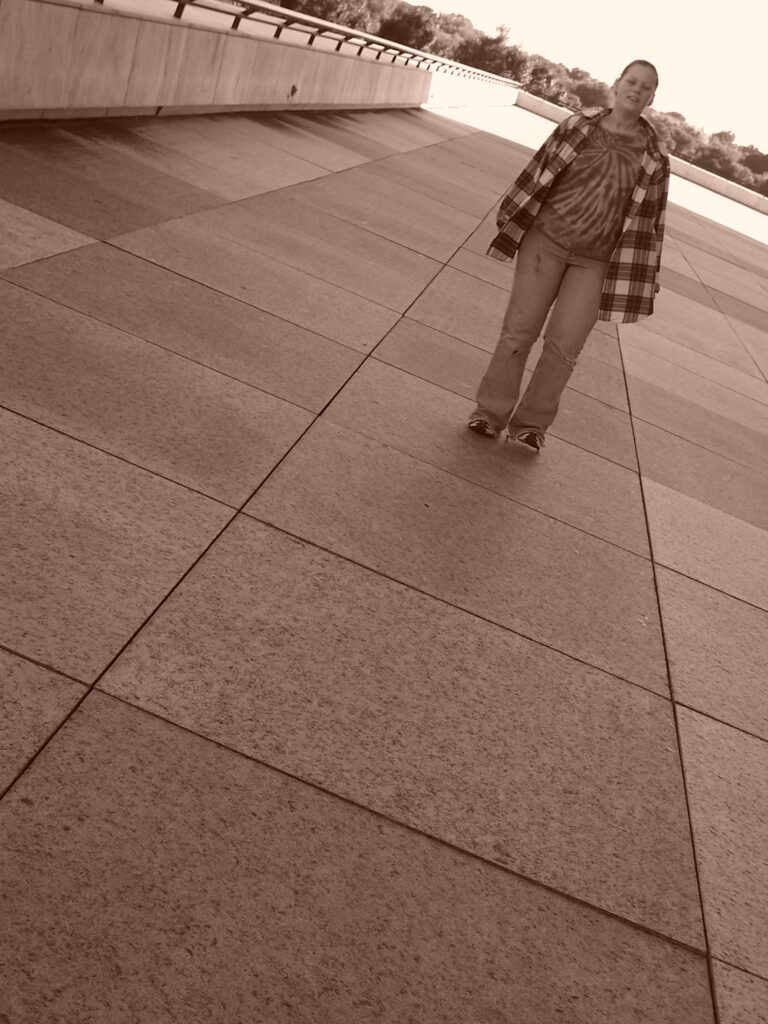
Each of these moments left marks and scars, both big and small, some more fully healed than others.
After the breakup with my first serious girlfriend, I went so far back into the closet I practically disowned my entire life. I gave away all my cherished Ani DiFranco and Melissa Etheridge CDs, my collection of VHS tapes, all of my gender studies textbooks, and even my stolen copy of Annie on My Mind. Trying to be in a committed relationship while being in the closet made my world feel microscopically small. This life was too hard, I decided; I would just stay single for the rest of my life and that way I’d never have to be fully out. I wouldn’t have to be subjected to hate or violence ever again. This whole gay thing would be a non-issue, right?
Wrong.
I was so deeply unhappy and unhealthy during that time. I was committing hate and violence against myself now. I felt like I was between two worlds and that I didn’t belong to either of them. With my family, I felt like I was living a lie. Alternately, since I was in the closet, I felt like I wasn’t “gay enough” to be a part of that community either. It would take me years to find my way back out into the light. I ultimately had to seek therapy and gradually work through a lot of that internalized homophobia I had lurking around in the cobwebs of my mind. I had to learn how to love and accept myself for who I was, to discover on my own terms that I didn’t have to try to cram myself into anyone else’s ideas about who I should be. And it would still be years before I could finally come out to my family.
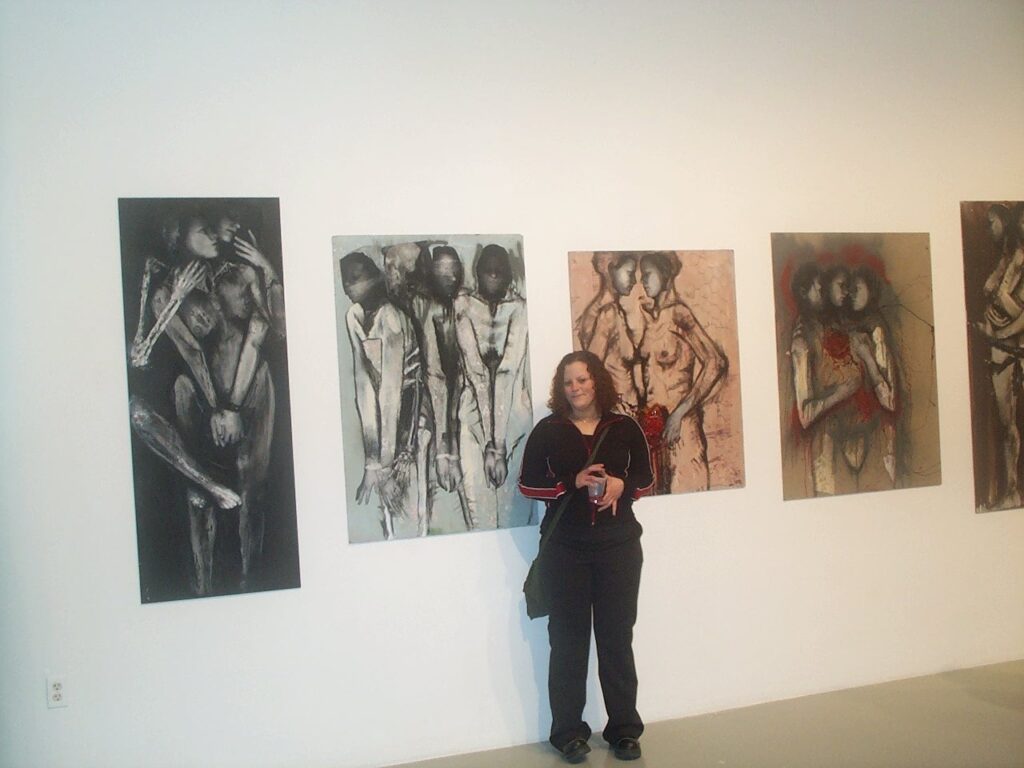
When my second book, The Last to Let Go was published, and featured a lesbian protagonist, I had a whole new and public coming out experience. While this one was very positive, it still brought up a lot of these old wounds and memories of what it was like to come of age in a time and place where there was such uncertainty of whether or not I would be accepted and loved, or even safe. That’s when I started thinking about the book that would become Something Like Gravity.
Writing is always therapeutic for me, and I found that I really needed a place to work through not only my own experiences, but also a place to address the recent backlash against the LGBTQ community and a lot of the transphobia ramping up over the last several years (because whenever there is progress, there is going to be backlash). But the thing that inspired me to turn Something Like Gravity into a love story is that my soul really needed to write about something that was equally as powerful as all of the difficult, painful experiences. In this case, that something became a story about falling in love, finding hope, and living your truth, against all odds.
I lived in fear and anger for a long time, and while I’m thankful that things are slowly changing and some of us in the LGBTQ community are beginning to find more equality, there are still so many fights to be won. In many respects I see history repeating itself in the plight of queer youth today—particularly individuals who identify as trans or nonbinary—and it makes my heart ache.
ADVERTISEMENT
ADVERTISEMENT
There is nothing I know of that opens minds and hearts better than sharing our stories, and I wrote Something Like Gravity in the hope that it can help in some small way to give young people who may be feeling some of what I felt at their age a space to be seen and validated and safe. And ultimately, it is my hope that readers will be able to find aspects of themselves in these characters; even if they aren’t transgender or queer. We are all perfectly imperfect, each of us a work in progress, and the one thing that connects us is love. I believe that love is powerful, transformative, and it is what gives us hope—something no one should ever be without.
Although I took a constantly twisting road to get here, I can say that today I am out, happy, loved, and incredibly proud of the life I’ve created.
P.S. I should add that I have since donated, with apologies and thanks, a new copy of Annie on My Mind to the Buffalo and Erie County Public Library.
Meet Amber Smith
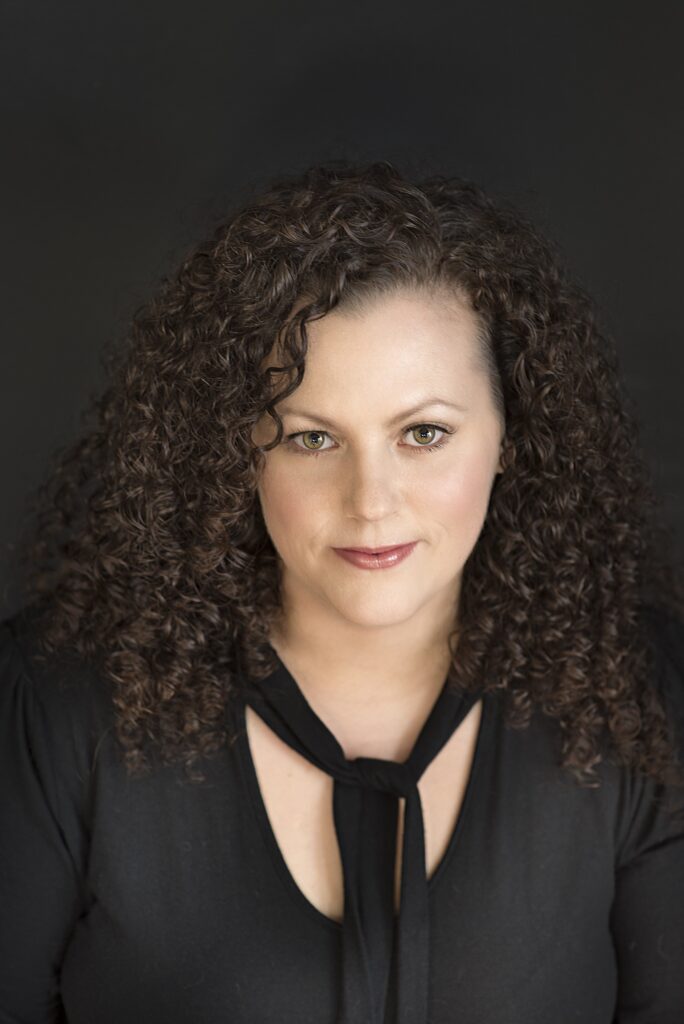
Amber Smith is the New York Times bestselling author of the young adult novels The Way I Used to Be, The Last to Let Go, and Something Like Gravity. An advocate for increased awareness of gendered violence, as well as LGBTQ equality, she writes in the hope that her books can help to foster change and spark dialogue surrounding these issues. She grew up in Buffalo, New York, and now lives in Charlotte, North Carolina, with her partner and their ever-growing family of rescued dogs and cats. Pronouns: she/her/hers.
Website: www.ambersmithauthor.com
Twitter: @ASmithAuthor
Instagram: @ambersmithauthor
Facebook: @AmberSmithAuthor
About SOMETHING LIKE GRAVITY

For fans of Love, Simon and Eleanor & Park, a romantic and sweet novel about a transgender boy who falls in love for the first time—and how first love changes us all—from New York Times bestselling author Amber Smith.
Chris and Maia aren’t off to a great start.
A near-fatal car accident first brings them together, and their next encounters don’t fare much better. Chris’s good intentions backfire. Maia’s temper gets the best of her.
But they’re neighbors, at least for the summer, and despite their best efforts, they just can’t seem to stay away from each other.
The path forward isn’t easy. Chris has come out as transgender, but he’s still processing a frightening assault he survived the year before. Maia is grieving the loss of her older sister and trying to find her place in the world without her. Falling in love was the last thing on either of their minds.
But would it be so bad if it happened anyway?
ISBN-13: 9781534437180
Publisher: Margaret K. McElderry Books
Publication date: 06/18/2019
Filed under: Uncategorized
About Amanda MacGregor
Amanda MacGregor works in an elementary library, loves dogs, and can be found on Twitter @CiteSomething.
ADVERTISEMENT
ADVERTISEMENT
SLJ Blog Network
2024 Books from Pura Belpré Winners
In Memorium: The Great Étienne Delessert Passes Away
Winnie-The-Pooh | Review
Parsing Religion in Public Schools
ADVERTISEMENT



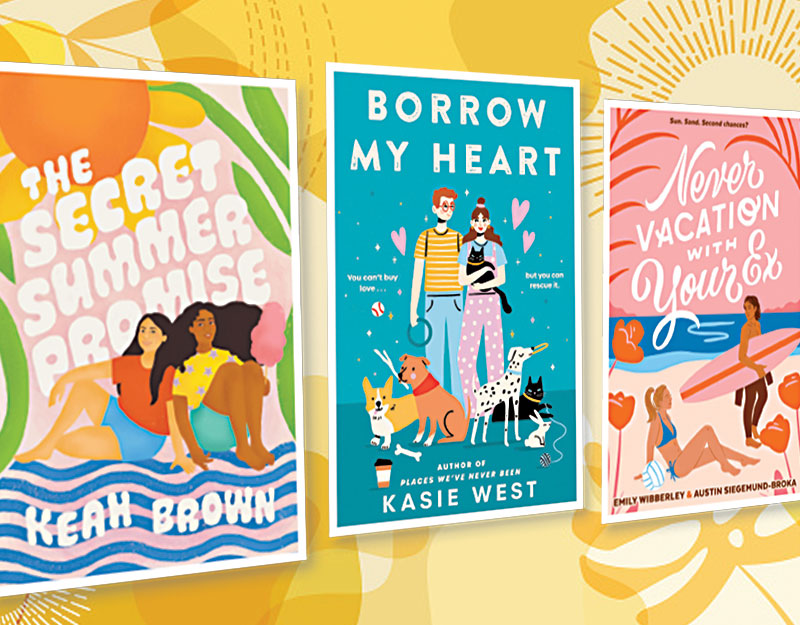
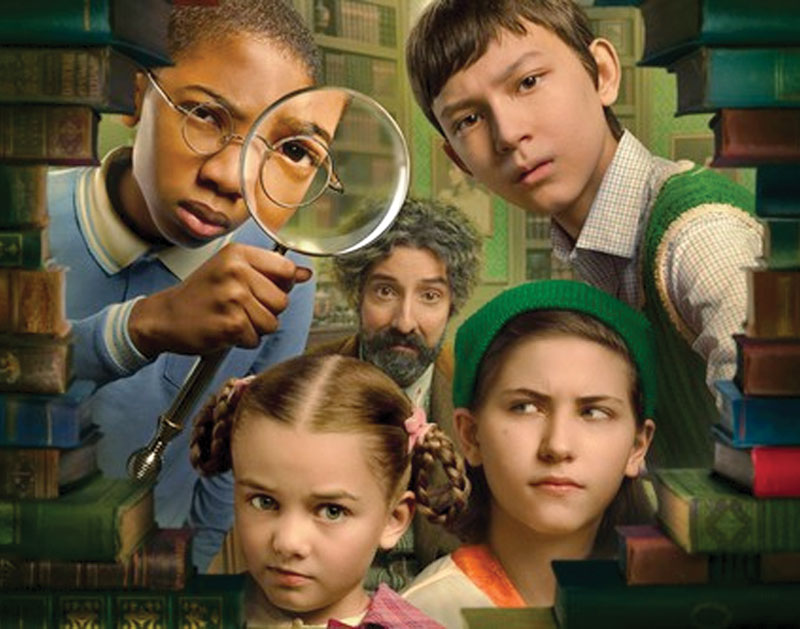
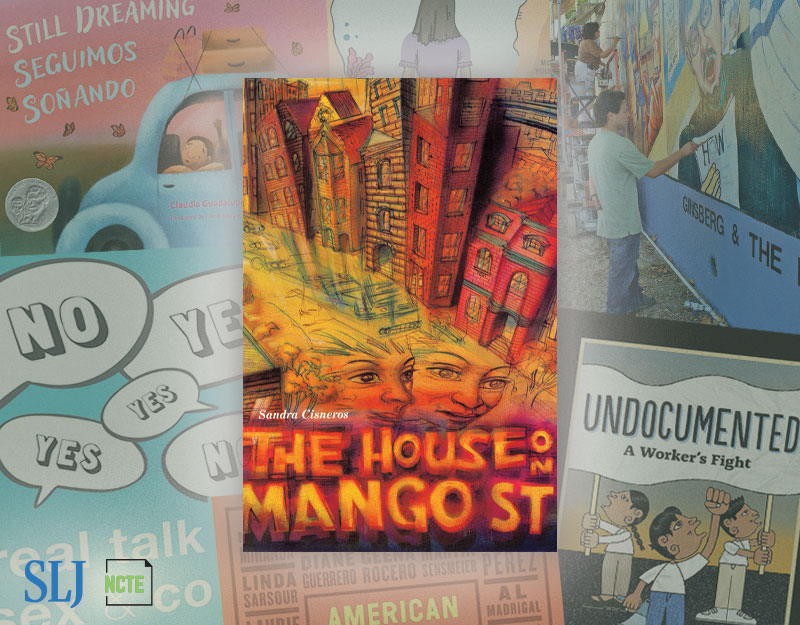
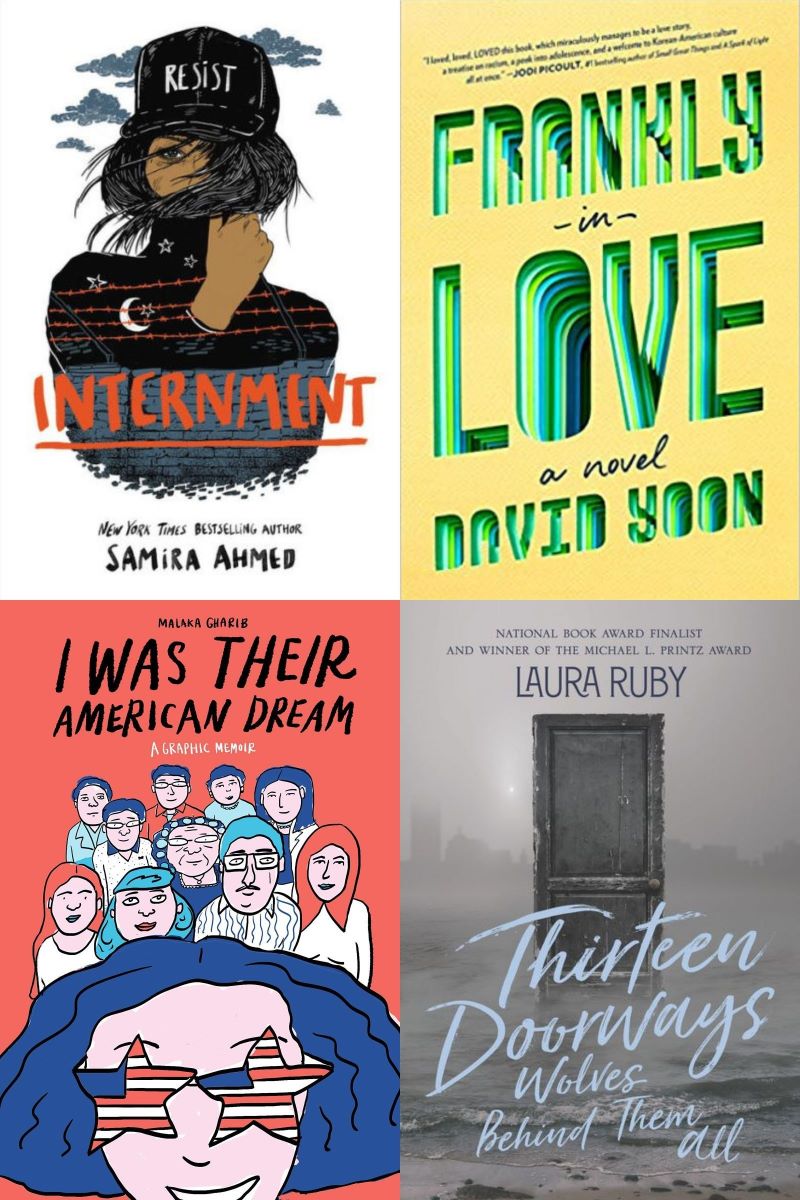
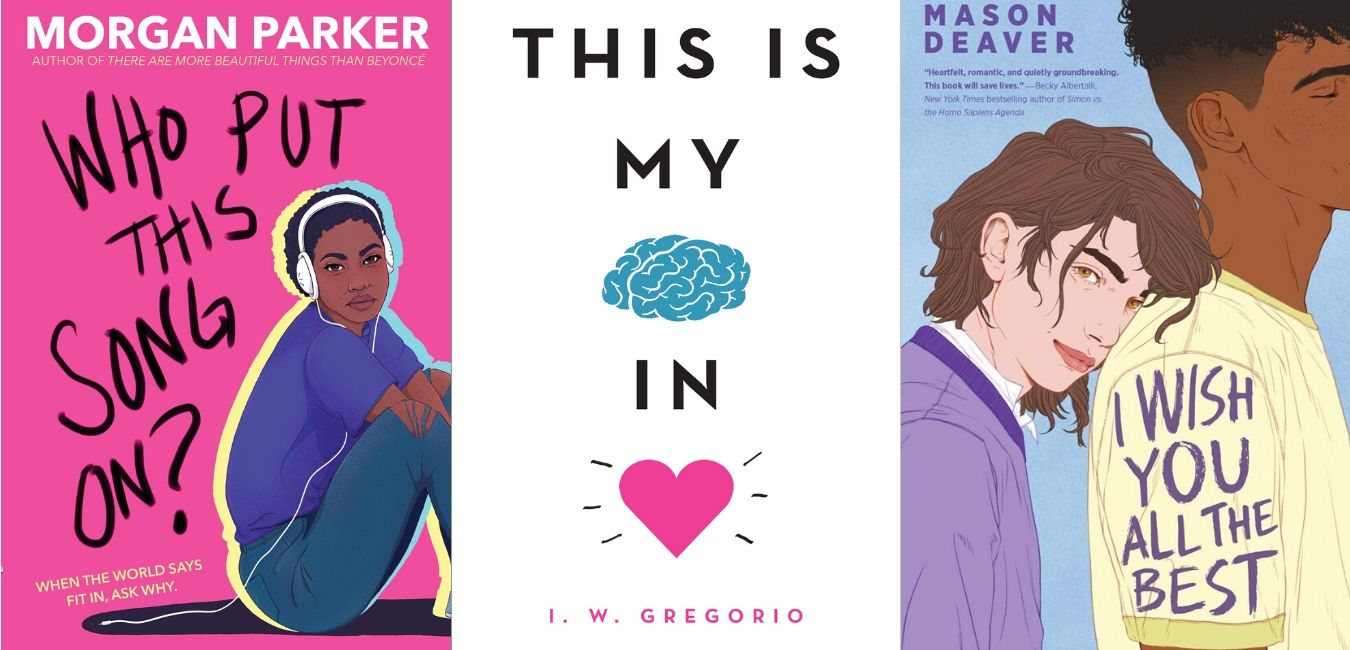
Oh Annie on My Mind. in the nineties, it used to actually live in my closet. Hiding from my parents. That’s a very special book for so many of us.
What a great guest post. I had a similar relationship with the Rainbow Boys books and my library’s copy of Hard Love by Ellen Wittlinger.
I did this, too. I was a library page, and I found Annie on My Mind…I smuggled it home because I didn’t want any staff to see me with it in case they would guess. It changed my life so completely. One of the highlights of my young librarian life was meeting Nancy Garden at ALA in Toronto and telling her about that!